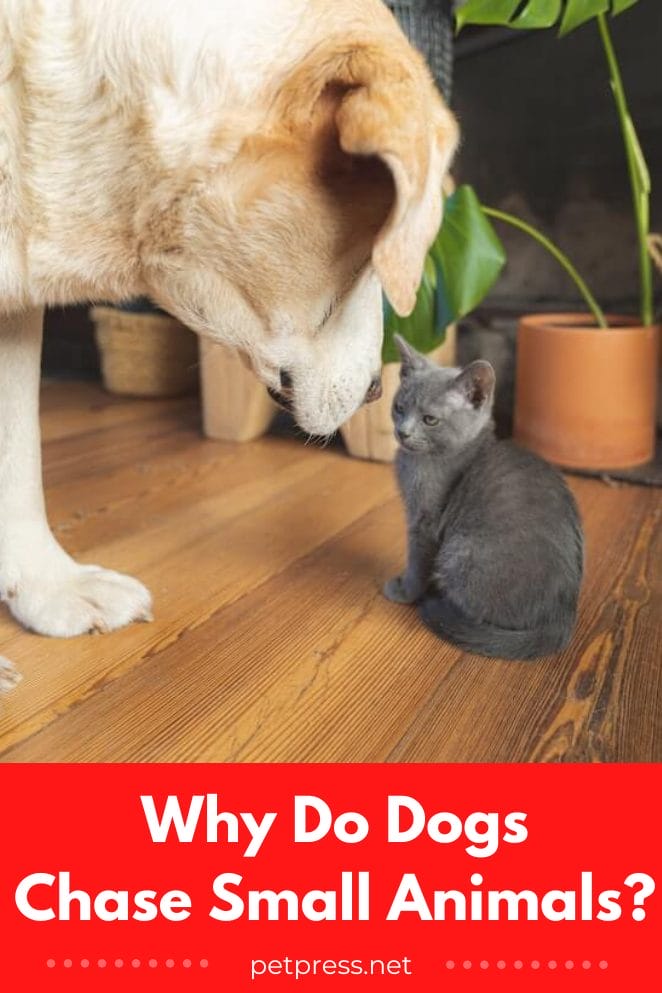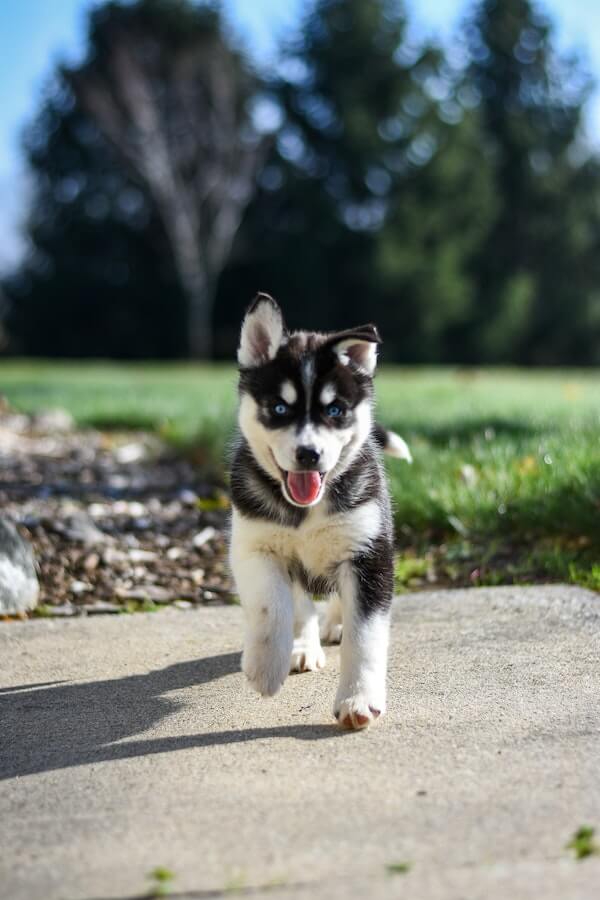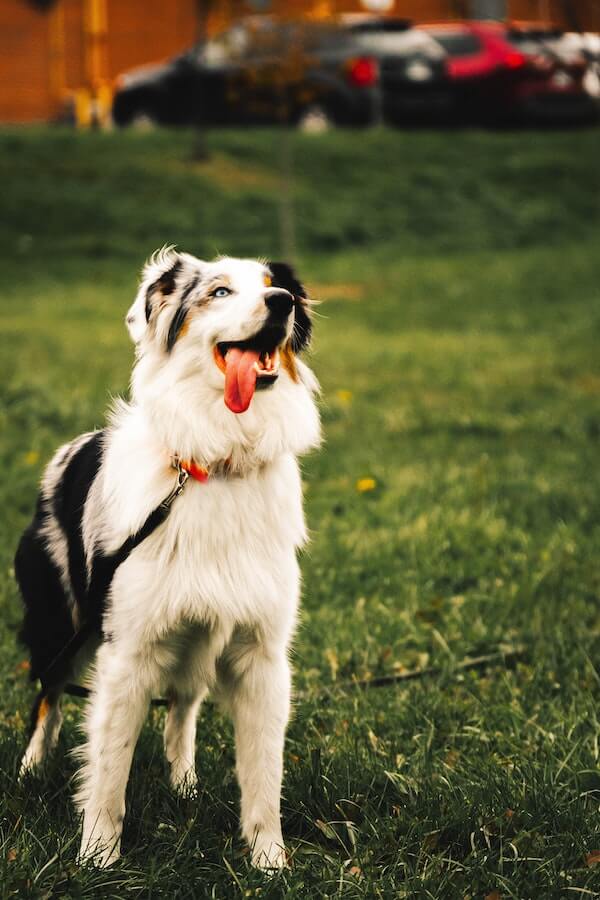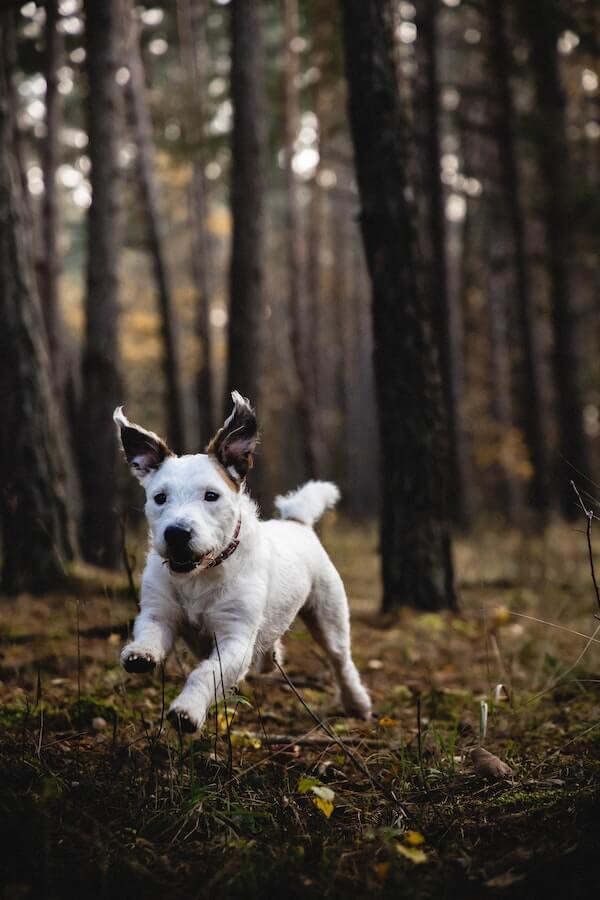
Many of us have had the experience of watching our beloved pooches chasing small animals in the backyard. But why do dogs chase small animals?
Whether that animal is a busy squirrel, a bold rabbit, or some other critter, it’s a scene that can leave us shaking our heads – and laughing at how determinedly our furry friends are tackling the task!
While we may chuckle at their antics, it’s important to remember that this behavior can be dangerous for both the pup and the prey.
That’s why it’s so essential for all canine parents to know how to discourage dogs from chasing small animals.
So if you’re ready to learn more about why dogs chase small animals and how to help keep them on their best behavior while outdoors, let’s dive in!
Why do dogs like chasing animals?

Dogs love to chase animals because it gives them a sense of purpose. After all, our canine companions have been bred for centuries to be expert hunters, so chasing after small critters is instinctive and satisfying!
When they’re successful in their hunts, they often come away with a feeling of accomplishment – much like humans do when we finish a project or complete a goal.
Plus, dogs get an adrenaline rush when they’re chasing something, which makes the activity even more enjoyable. So next time you see your pup chasing that pesky squirrel up the tree, just remember: they’re enjoying every second of it!
Why do dogs chase small animals?
If you’ve ever seen a dog chasing after a small animal, like a squirrel or rabbit, then you know that it can be quite the spectacle.
Why do dogs chase small animals? There are actually lots of reasons why this behavior is common in our furry friends. Here are seven explanations for why dogs may have an affinity for chasing small critters:
1. Instinct
Dogs’ predatory instincts dictate that they need to hunt to survive. This instinct leads them to pursue prey-like objects such as rabbits and squirrels, even if they don’t intend on actually catch them.
2. Stimulation
Dogs may find immense satisfaction from the act of chasing something around. Whether it’s exerting their energy to catch prey, or simply running around for the thrill of it, some dogs may find chasing small animals quite stimulating.
3. Territoriality
Small animals entering your backyard can be seen as a threat to territory by your pup. Dogs are natural protectors and will often chase away intruders in order to defend their domain.
4. Curiosity
It’s natural for dogs to have an inquisitive nature when it comes to exploring their environment. They may just want to take a closer look at what that small animal is all about!
5. Feeling of success
Chasing after something and succeeding in catching it can give your dog a sense of accomplishment and pride that they can’t get anywhere else.
6. Attention seeking
If your dog is feeling neglected, it might be more likely to chase after small animals in order to get attention from you or other people around them.
7. Boredom
A bored pup can become quite restless and look for any kind of stimulation, even if it’s chasing small animals around the yard.
This brings us to the next question asked by most dog parents.
How do I get my dog to stop chasing small animals?

If you’ve ever found yourself chasing after your pup in a frantic attempt to stop them from chasing after a small animal, then you know it can be stressful and frustrating.
There are several ways to help prevent your pup from giving in to their innate desires. Here are four tried-and-true methods for getting your dog to stop chasing small animals.
1. Establish boundaries:
Teaching your pup that certain areas are off-limits is one of the best ways to prevent unwanted chases.
Whether this means establishing physical boundaries with fences and gates or teaching commands like “stay” and “come,” having a clear set of boundaries for your pup can help to keep them from chasing after small animals.
2. Train them in distraction:
Does your pup have an irresistibly strong urge to chase? Training them in distraction is the perfect way to redirect their attention and energy away from the little critter they’re trying to catch.
Try teaching commands like “sit” or “down,” and rewarding your pup with treats when they obey.
3. Exercise regularly:
Keeping your pup active with daily exercise routines can improve both their physical and mental state, allowing them to better focus when confronted with situations that may trigger their impulse to chase small animals.
Regular walks outdoors or playtime at the park are great ways to give your pup an outlet for all that extra energy.
4. Speak with a vet:
If none of these tips have been successful, then it might be time to speak with a veterinarian about possible solutions.
Your vet may suggest medication or other treatments that could help keep your pup calm and relaxed around animals or even recommend speaking with an animal behavior expert.
Conclusion

It’s true that dogs have a natural instinct to chase small animals. However, it is important to recognize that this behavior can be dangerous and should be controlled.
Taking the right steps early on can help prevent your pup from becoming an uncontrollable chaser of furry critters! But hey, at least you’ll never have to worry about your dog being scared of cats – they’re too busy chasing them!
At the end of the day, we all know why our four-legged friends are so lovable: their unbridled enthusiasm for everything life throws their way.
So don’t let those pesky rabbits or birds stop you from enjoying time with Fido – just make sure you keep a close eye on him while he’s out playing! That way, you can zig when he zags and keep him from becoming a menace to small animals everywhere.


GIPHY App Key not set. Please check settings